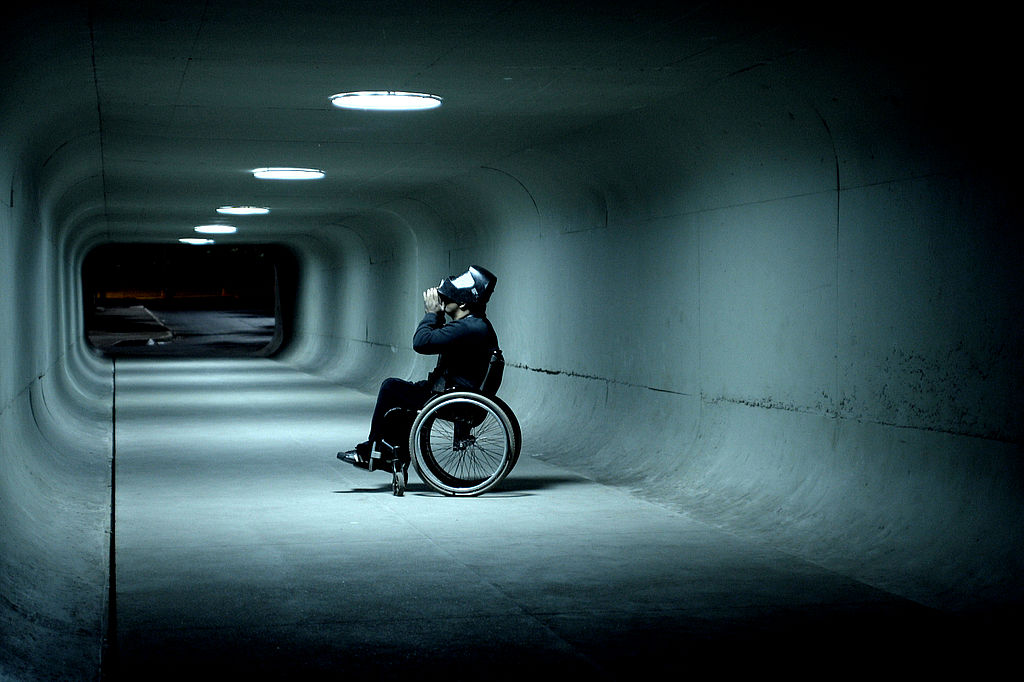MUBI's Brazilian summer season has laid out a variety of different approaches to the issue of a democracy in crisis, the sunkissed escapism of the short film Breakwater (on the importance of getting away from the quagmire for a while, and forming your own protective circle of friends) standing in marked contrast to the business of last week's activism doc Landless (which advised us to assemble in numbers and dig ever more forcefully in). The line writer-director Adirley Queirós takes in his Once There Was Brasilia is to treat the country's recent turmoil as science fiction, a dystopia in the present tense, and see what that leaves anybody with. After scratching my head and drumming my fingers for much of the film's 100 minutes, the closest I could provide to a poster quote would be "a very odd bric-a-brac of tropes and poses". Queirós has taken what sound like authentic radio broadcasts describing the downfall of President Rousseff and plugged them into a live-action fantasy/nightmare, apparently shot on the smallest imaginable budget and under the cover of night, about a hotchpotch group of survivors navigating the fallout from this democratic apocalypse, and a space traveller (Wellington Abreu), sent to Earth on a mission to assassinate the incoming President. That President has been given an unfamiliar name - probably a wise move, for legal reasons - but the film intends to put on screen some of the instincts liberal-left viewers may have had in countries being preyed upon by right-wing populists. Hold out for a hero; take extreme forms of action; throw up your hands in despair.
Important to note at this juncture that anyone anticipating high-octane thrills-and-spills along the lines of The Terminator, Mad Max or any other plucky shoestring-dystopia should look elsewhere. Queirós's film opens with a hushed conversation on a railway footbridge; its pacing is curiously counterintuitive. We spend an inordinately long while on the intergalactic assassin's spacecraft - long enough, for one thing, to spot that it's a hollowed-out transit van being rocked side-to-side by burly offscreen runners. I wasn't quite sure why it was important for us to know the character was a diabetic, nor that we needed to see him injecting himself with insulin for a full two-and-a-half minutes, but then Queirós seems unusually keen to dwell on what passes before his camera. When someone finally torches a car around the hour mark, we have to sit and watch it burn for a further five minutes, presumably as it represents the last of the budget going up in smoke. If this director has been taking notes from any North American filmmaker, it would have to be Jim Jarmusch: he's not terribly fussed about genre per se, and faced with the possible end of the world, thinks nothing of beginning to drag his feet a bit. If that makes Once There Was Brasilia a busted flush as an evening's entertainment, it nevertheless proves one of those peculiar misfires that does capture something, even if only in passing, by accident; what it captures is a very familiar ominous mood. (Is this uncertainty as bad as it gets, or are we doomed to more?) Chalk that down to the film's surreptitiousness: this was clearly a project conceived and carried out in lock-up garages, sideroads and sheltered spaces where there would be no-one around to nab you for shooting without a permit. The lack of onscreen urgency seems doubly perplexing in this context; if the movie weren't so lackadaisical, we might have been made privy to the authentic panic in the streets.
Once There Was Brasilia is now streaming via MUBI UK.

No comments:
Post a Comment